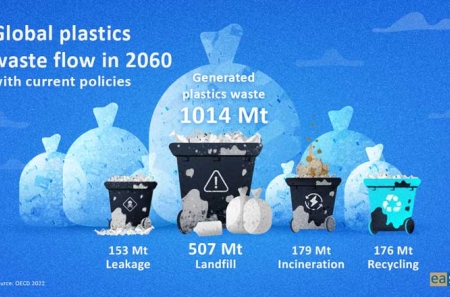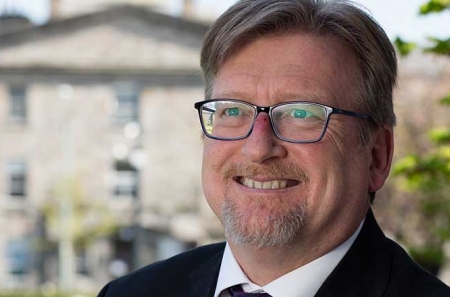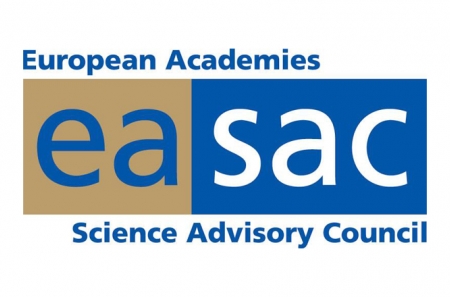
Watchback: Higher Education Futures Conference
26 January 2023Exploration and Transformation: The future of higher education on the island of Ireland took place on 25 November 2022. Watch back the conference and learn more.
Mary Canning MRIA opened the Higher Education Futures conference on 25 November 2022. This event was a follow-up to the Higher Education Futures Series of papers on the future of HE on the island of Ireland, launched in November 2021.
Professor Gerry McKenna MRIA, Chair of the Higher Education Futures Taskforce welcomed Professor Maria Leptin, President of the European Research Council (ERC) to give a keynote address on ‘The impact of reforming research assessment’.
Professor Leptin’s address spoke of the ERC’s review on how assessment is conducted on research and the European Commission’s process that seeks to reform research assessment. This was launched in January 2022 and the final agreement had brought together over 350 organisations from 40+ countries and was launched in July 2022. Professor Leptin remarked on the history of reform in research assessments and how research exploded in a post WW11 context and the role that the ERC has to play in this. Professor Leptin also spoke of the importance of Frontier Research, and that assessment should also not determine what type of research should be funded. Europe is ahead of the curve in a commitment given, however, it falls short in its funding of R&D with 2.3% of GDRP spent, behind the USA for example with 3%.
The keynote address was followed by panel discussions on the future of HE throughout the day.
Panel Discussion I: Enhancing Research Structures: Funding policy, structural developments, performance and impact of the higher education research system.
- Dan Carey MRIA Moderator
- Rob Kitchin MRIA, Maynooth University
- Professor Emma Flynn, Pro-Vice Chancellor, Queen’s University Belfast
The panel discussed the need to move from aspiration to direct action in terms of research and funding. Professor Kitchin spoke of the requirement for a diverse funding policy, infrastructure and need for competitive salaries to attract foreign talent. PhD stipends have not increased in the period 2006-2021. Funding of all departmental research should come under one umbrella organisation to fund research.
Professor Emma Flynn outlined the UK’s approach, the incoming Belfast City Deal, a portion of which is going to research, worth £300 million, in order to research environmental impact. Professor Flynn would like to see five areas addressed and implemented when it comes to research structures: Sustainable model; Investment in people; Partnerships; Comprehensive (different demographics /segments of society needed to address issues); Excellence (research must be efficient, cannot be bogged down in bureaucracy).
Panel Discussion II: Creating a more inclusive future: Universities as leaders in research, innovation, creativity and social progress.
- Dr Siobhán O’ Sullivan, Executive Director, Royal Irish Academy (Moderator)
- Michael D’Arcy, Programme Lead IBEC/CBI Joint Business Council,
- Professor Eeva Leinonen, President, Maynooth University
- Michael Murphy, President, European University Association
Michael D’Arcy spoke of the transformative impact of the Good Friday Agreement (GFA) on the island and stated that the GFA and EU membership are pillars of Ireland’s economic progress. Professor Michael Murphy observed that there is an onus to create and ensure the existence of a democratic European Society and to maximizing access to higher education. Professor Eeva Leinonen remarked that Higher Educational Institutions are non-political organisations in very political environments and advocated that they can and are viewed as an honest broker, and that the public has confidence in their expertise.
Presentation: ‘Higher Education and Religious Studies in Europe: challenges, opportunities, needs for a pluralistic society' by Professor Alberto Melloni, UNESCO Chair on Religious Pluralism and Peace at University of Bologna and Chief Scientific Advisor of the European Commission
Panel Discussion III: Global Perspectives in Higher Education: Challenges to Academic Freedom and Trust in Scientific Endeavour.
- Professor Karl Leydecker, Senior Vice- Principal, University of Aberdeen, Royal Society of Edinburgh (Moderator)
- Sinéad O’Gorman, European Director, Scholars At Risk
- Luke Drury MRIA, Vice-President ALLEA
- Professor Linda Hogan, Trinity College Dublin
Sinead O’Gorman gave an overview of the most recent Free to Think Report and the types of attacks on Academic Freedom. She stated that 2022 had seen the largest increase in attacks ever and that according to the Academic Freedom Index there had been a marked decrease in respect for Academic Freedom in recent years. Professor Drury stated that there was a problem in the global North due to individualism that is on the rise still and that research must comply with agreed research methods / customs. He remarked that there should be protection in law from interference in academic freedom and that this policy should be implemented by funders. Professor Linda Hogan spoke to the rise of fake news and the rising stakes that come with that when science is not respected or believed. She stated that science was the solution to many issues facing the world, but that expertise of science cannot be achieved without Academic Freedom and therefore ,Academic Freedom is to the benefit of people.
Panel Discussion IV: Going Green: Climate change mitigation, adaptation, sustainability and higher education efforts to combat environmental disruption
- Jennifer McElwain MRIA, Trinity College Dublin (Moderator)
- Dr Karen Kerr, Queen’s University Belfast and Education for Sustainable Development Forum
- Professor Jane Stout, VP for Biodiversity & Climate Action, Trinity College Dublin
- Dr Diarmuid Torney, Future Earth Ireland and Dublin City University



